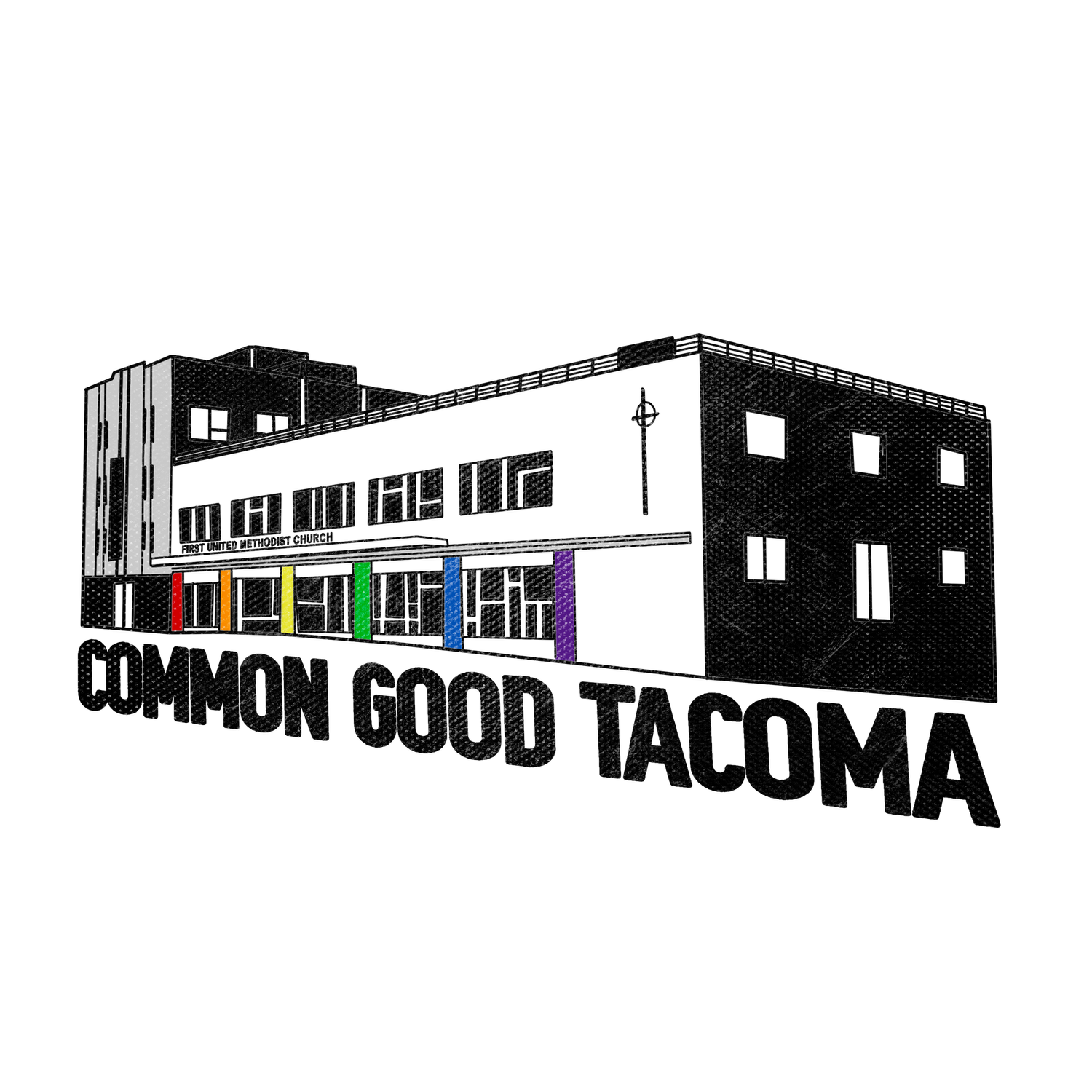Emergency Collective Action on Tuesday, 10/21: Say no to the camping ban expansion
The second reading of Ordinance 29064 (ORD29064) will be heard on Tuesday, October 21 at the 5pm Council meeting.
This ordinance proposes a massive expansion of the camping ban in Tacoma—a policy that targets neighbors who sleep outside, confiscates survival gear, and will effectively making being homeless illegal in Tacoma. According to the city, it has spent $4,535,136 on encampment removal as of June 2025– how else could that be used for the common good?!
We're partnering with outreach workers in our Outreach Collective and Tacoma 4 All members in supporting unhoused neighbors. We demand our taxpayer money is spent creating stability and solving the affordable housing crisis.
We sees the detrimental impact of sweeps on unhoused folks -- let's show up as Common Good Tacoma in force!
Tuesday, October 21
Tacoma City Hall, 747 Market St, Tacoma
4:30pm Rally Outside City Hall
5:00pm Testimony to City Council
You may send written comment/testimony by 5pm on Monday, October 20.
To give in person or online comment/testimony, you may sign up the day of.
FREQUENTLY ASKED QUESTIONS
Who is sponsoring this ordinance?
Where can I read the full ordinance?
What’s the context of this ordinance?
The City of Tacoma is considering an ordinance (sponsored by John Hines, Victoria Woodards, Sarah Rumbaugh, Sandesh Sadalge) that would expand enforcement zones prohibiting public camping and storage of personal belongings. This policy would reintroduce broad “buffer zones” around shelters, schools, parks, libraries, and waterways, further criminalizing unsheltered homelessness without offering permanent solutions.
As sweeps increase, so do costs and public frustration, yet the visibility of homelessness remains. The time is now for Tacoma to pivot toward a prevention-based and housing-first strategy backed by local and national evidence.
What’s an alternative to this ordinance?
Investing in prevention and housing-first strategies that could:
Reduce the flow into unsheltered homelessness
Lower health, criminal justice, and emergency service costs
Yield net savings if benefit ratios are similar to national benchmarks (~1.3–1.8:1)
Stabilize encampment pressures, reducing the need for sweeps over time
For example, if Tacoma redirected some resources toward a prevention fund (rent assistance, deposit/utility support, guaranteed income), it might avert many future emergency response costs (shelter, sweeps, hospitalizations, policing).
What is the cost of encampment sweeps?
Encampment sweeps cost millions, deliver no lasting solution, and displace people repeatedly — all while failing to reduce visible homelessness. This approach represents poor fiscal stewardship and a disregard for the dignity of our unhoused neighbors.
Tacoma spent over $3 million on sweeps in 2023 alone (The News Tribune, 2024). The City's budget includes $12 million for sweeps in the 2025-2026 budget.
Studies show sweeps do not reduce homelessness but merely shift encampments geographically (University of Colorado Denver, 2024).
Sweeps disrupt healthcare, cause loss of ID and medications, and lead to higher use of emergency rooms, jails, and crisis services, all of which drive compounding public costs (Lewer et al., 2022; Cusack et al., 2022).
National reviews show that $1.30–$1.80 is saved for every $1 invested in housing-first programs (NLIHC, 2023).
Permanent supportive housing in Washington costs approximately $16,000 per year per person, often less than the annual cost of emergency response, jail, or shelters (WA Dept. of Commerce, 2024).


